A Chinese Odyssey: Finally in Beijing
We were fortunate enough to catch two lovely autumn days in the Chinese capital to cap off our trip.
On our last morning in Dunhuang, we got a chance to visit a wonderful three-floor bookshop in the heart of the new town. Besides offering a nice view of the riverfront and a good cafe, there is an excellent collection of books, mostly in Chinese. I could easily spend several hours in this wonderful space.
We were given a nice farewell lunch in the town before heading for the airport. Our flight to the capital wasn’t direct but had a stop in Lanzhou, where we had to get off the plane.
This is when we were told of a delay because of fog in Beijing. This is a yearly occurrence in the city and usually lasts two to three days at a time.
It was already early evening when we were cleared for takeoff to Beijing and couldn’t see much from the aircraft, even after we landed. So thick was the fog that we couldn’t even see other planes on the runway. Hats off to the air traffic controllers and the pilots for ensuring a smooth and safe landing in such conditions.
Used to polluted air in cities like Delhi, we thought it was a smog that hovered around Beijing, but it actually was just fog. Surprisingly enough, the fog began to clear as we left Daxing for the city centre.
I really have to congratulate the authorities in Beijing for cleaning up the air the way they have. I remember how toxic it was the last time I was in the city.
A feast of a dinner was waiting for us, including the famed Peking Duck for those who were not vegetarians. The restaurant we went to had a distinct old Beijing aura and stayed open for our hungry Indian group well after closing time. We had a somewhat busy schedule planned the next day.
The autumn winds cleared off the fog in the morning and we were in for a visual treat. After breakfast we went to the Chinese Communist Party Museum, which had a couple of impressive 5-D films about the progress of China since 1949. Among the exhibits displayed there was a car used by Deng Xiaoping and a large photo of Rajiv Gandhi’s visit to Beijing in 1987.
This was the day the city hosted its annual marathon (an event I hope to take part in 2025) and the blue skies, that many a Beijing resident is proud, of were visible.
Adding to the perfect weather was the golden-leaved Gingko trees. These trees are living fossils and are the sole survivor of an ancient group of trees that predate the advent of dinosaurs on Earth. I was told by a close surgeon friend that there is one night every year when these trees, native to Beijing, shed their leaves around the world and become bare-branched. This November night is called the night of the Gingko. There is no proper scientific explanation for how this happens on the same night around the world!
As we drove to a famous restaurant for lunch, I kept noticing similarities between Beijing and another city very close to my heart- Moscow. Even before I could ask about architecture that looked very Russian, like the 5-floor Khrushchevkas, our guide told us about how Soviet architects played a big role in rebuilding the city after the founding of the People’s Republic of China.
Post-lunch we had a symposium to attend at the Peking University campus, and were thrilled that we could enter the vast campus early and walk around on a perfect autumn afternoon. The Gingko and Poplars were at their golden yellow best and we fell in love with the campus. Established in 1898 by the Guangxu emperor, the campus has a lovely lake with Weeping Willow trees, again native to northern China. One of the most impressive structures in the campus is the Boya Pagoda, also called the “glimmering lake reflecting Pagoda” which was built as a water tower in 1924.
The campus also has other architectural masterpieces and a stone bridge. Who wouldn’t be inspired to study here or become a researcher?
The symposium was held with students who were studying Hindi. I was absolutely impressed with the quality of Hindi that was spoken by many of them. Most students spoke of their interest in Indian culture as their prime motivation to study Hindi, but one young man said it was the country’s cuisine that interested him the most!
I was touched by the sheer love and dedication for India and Hindi which the two professors we met showed us. The students read out a Hindi poem that literally gave me goosebumps and then they sang a popular Hindi film song.
After our symposium ended, I saw members of our group excitedly chatting and exchanging phone numbers with their young Chinese counterparts. I quietly observed this coming together of the people who I believe will bring about positive changes in the way the two countries see each other. The sight filled me with immense gladness and hope.
Within 12 hours, our wonderful China trip would come to an end!
Being an early riser I made sure I went to a beautiful riverside park before sunrise on our last day to get one final memorable experience in this wonderful country. The divine early-morning light bathed the modern buildings, the river and the golden autumn leaves. I took in as much of it as possible on my birthday morning, feeling nothing but gratitude.
Alas, it was time to get back to the hotel, eat breakfast and get on the bus for the airport.
I long to be back in China, to explore its diversity (slowly), try out even more cuisines and learn the language and contribute to building bridges between these two great civilisations in my own little way!






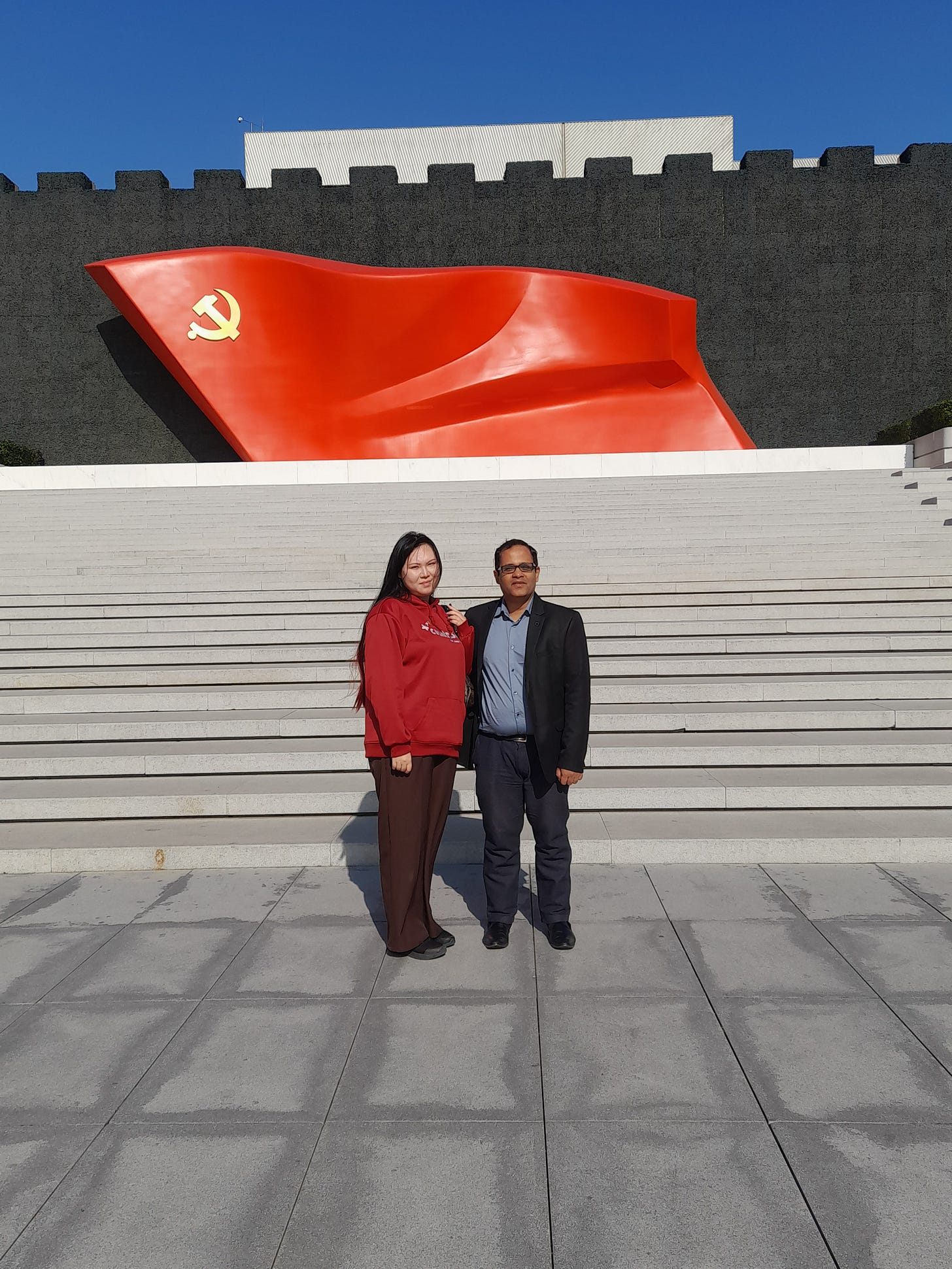
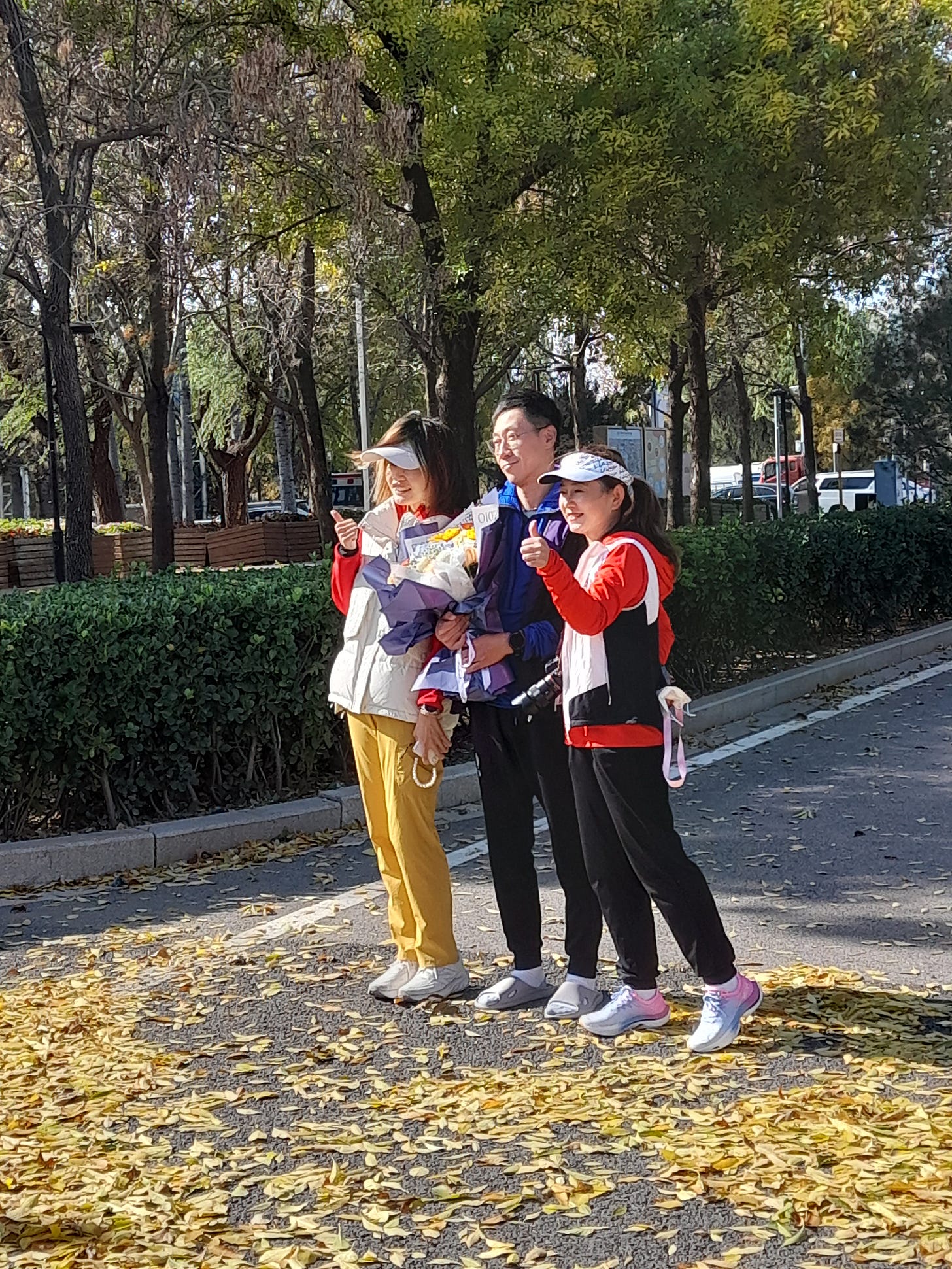
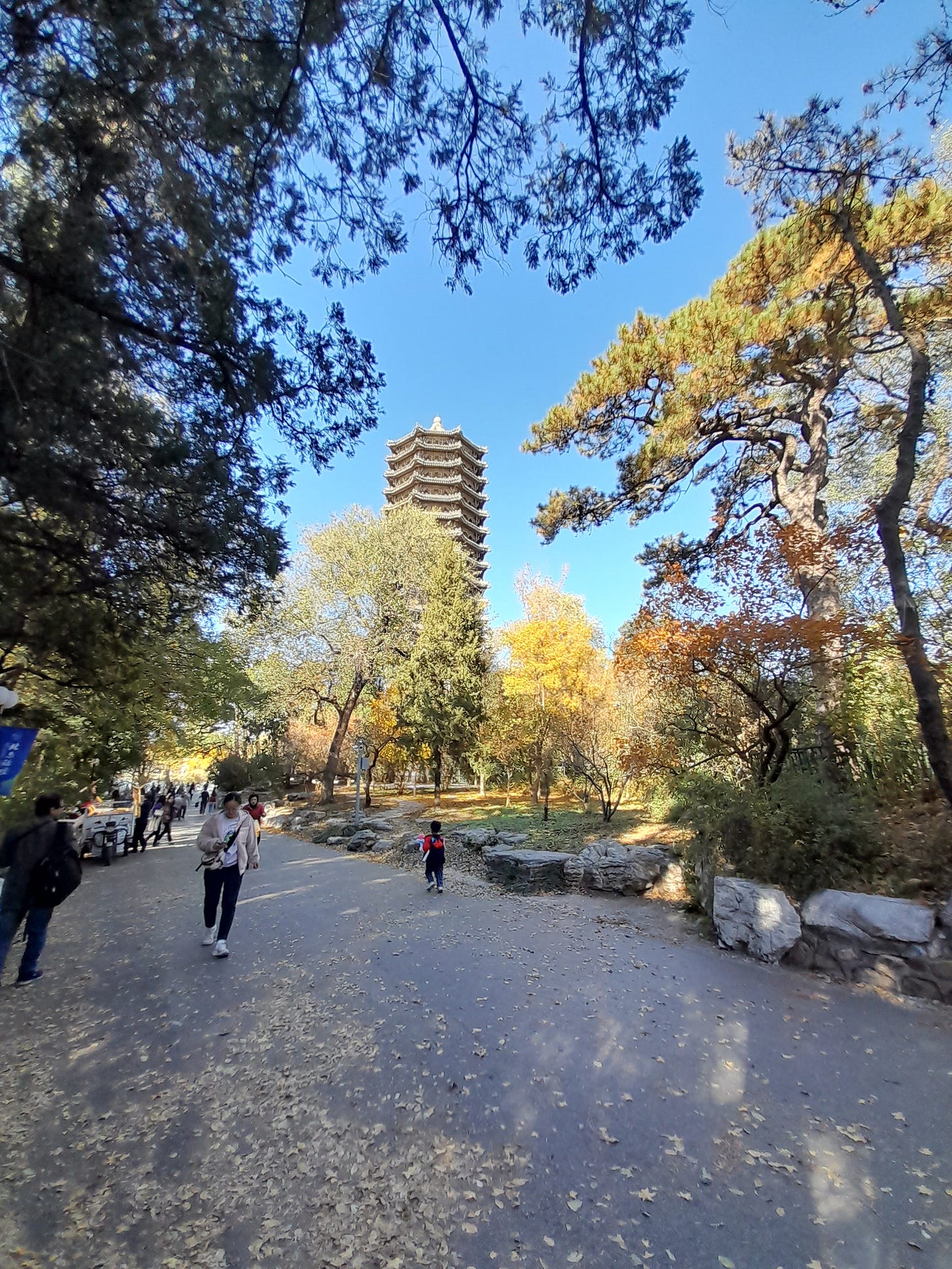
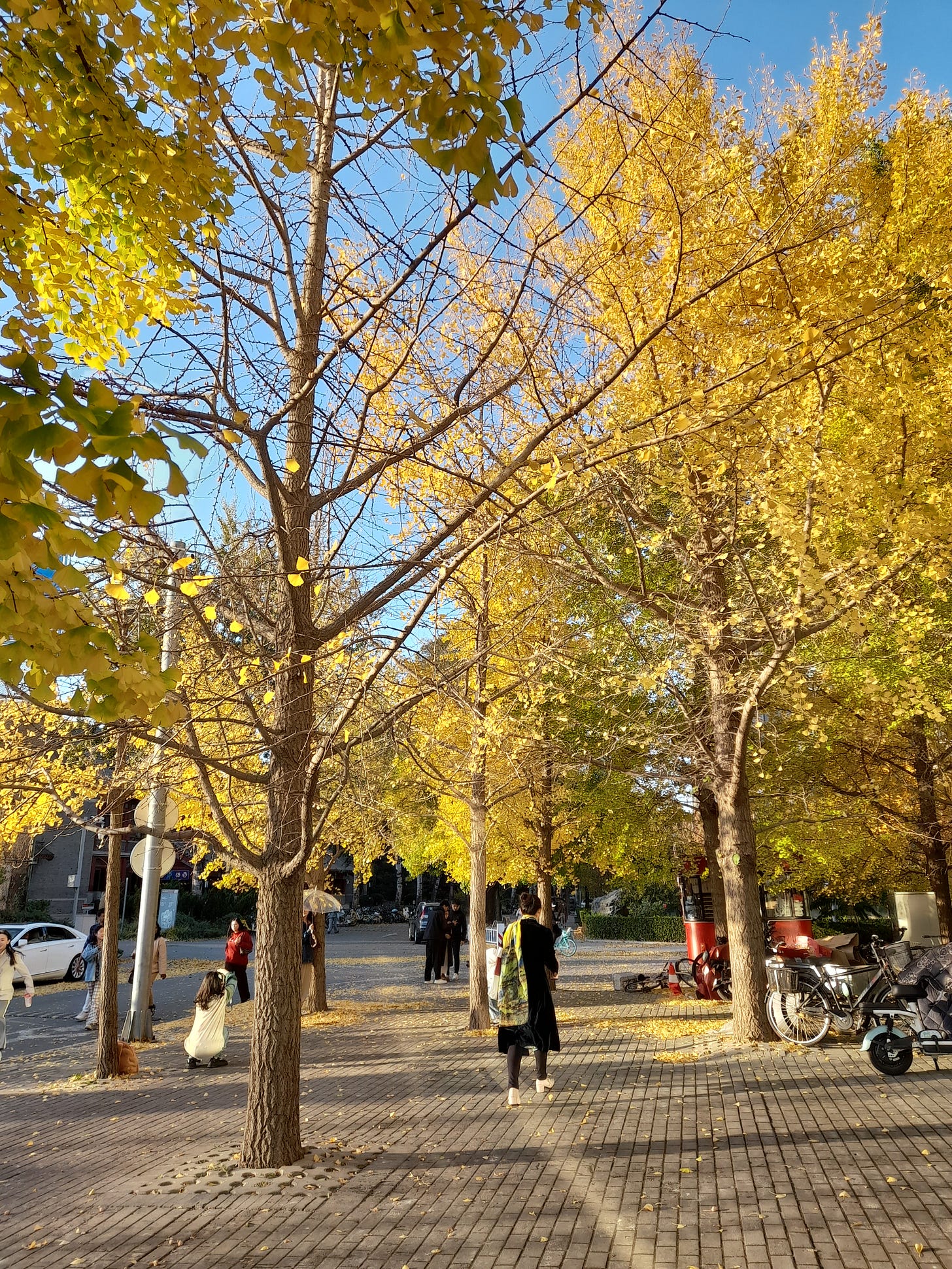
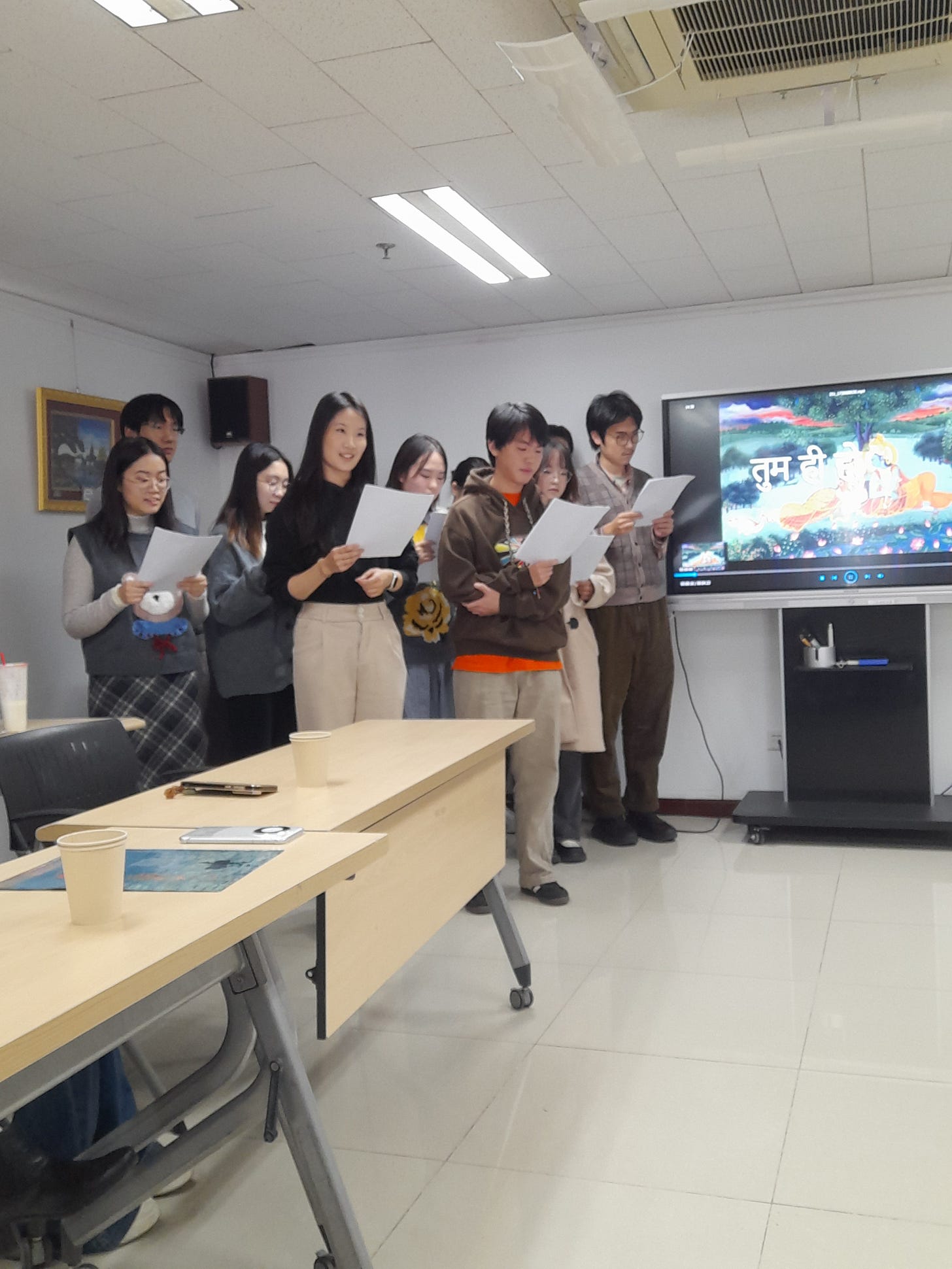
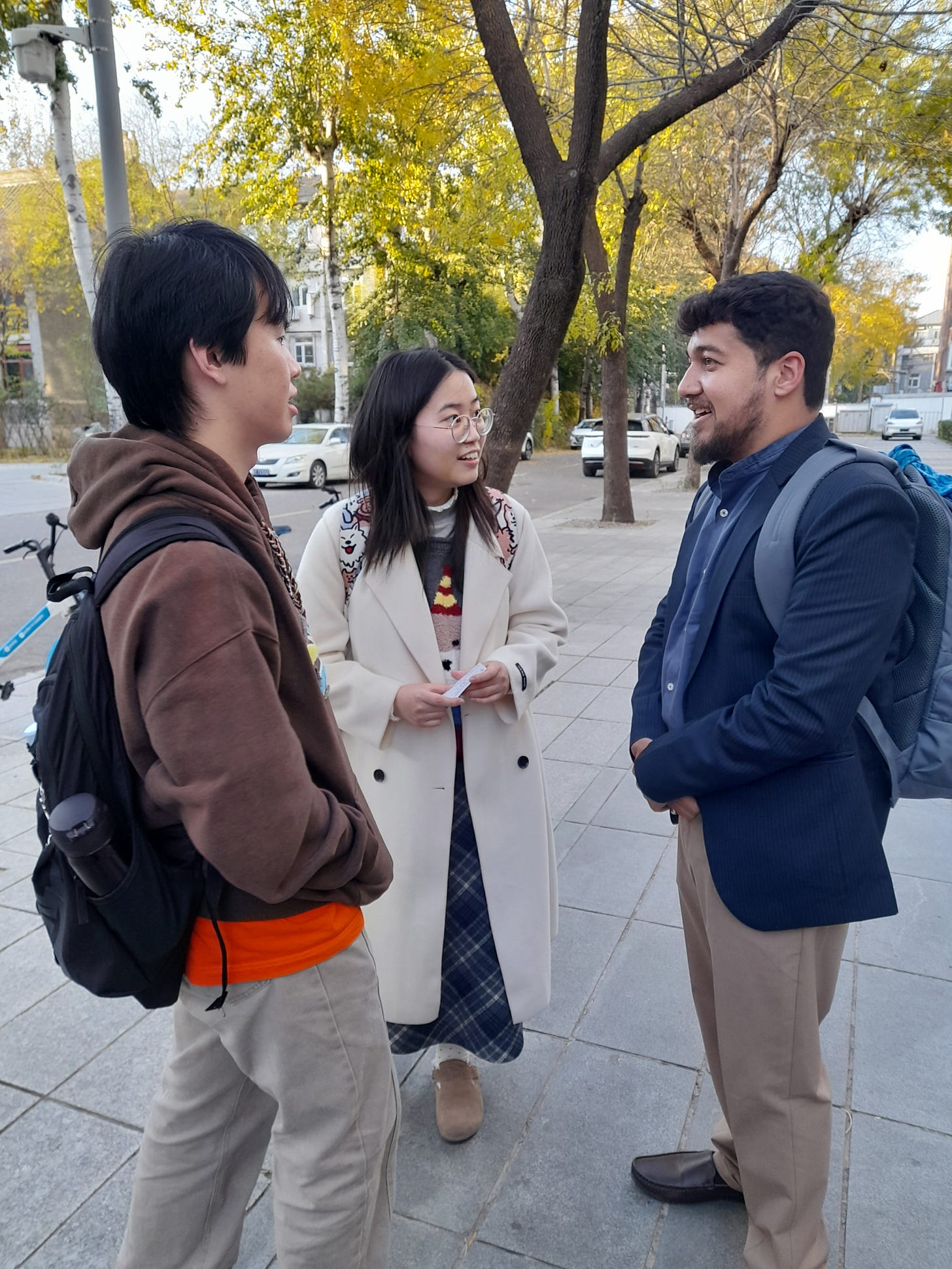
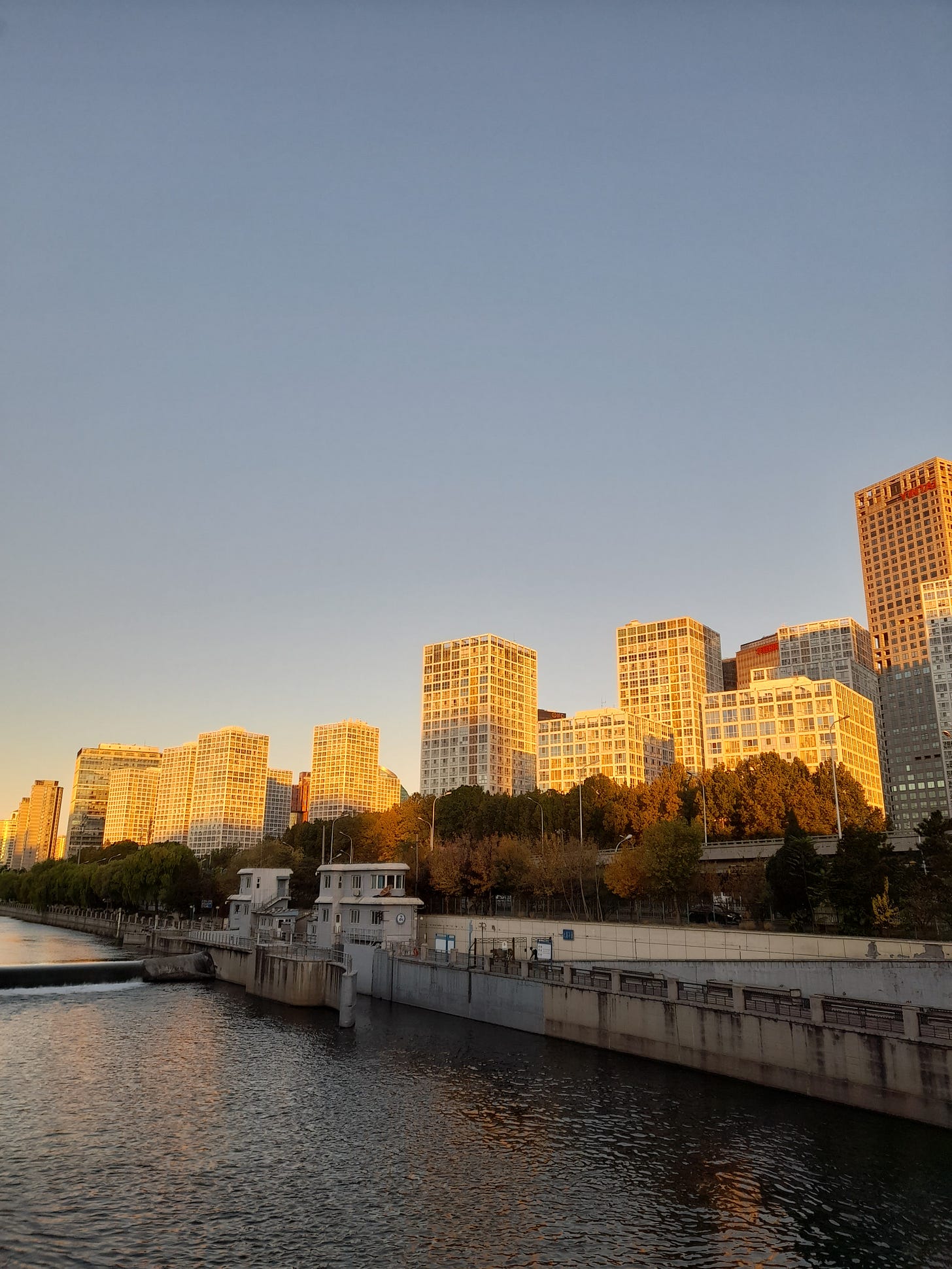

Very illuminating to hear in china there is university teaching Hindi and they sang Hindi song. It's so unbelievable. I got so much happiness and hope world in hearing that. It is wonderful that real world is a mix of exchange and unity and tolerance differing from the stereotyped world created by negative media and bad politics. There is a huge possibility for a better humanity with initiatives and efforts to exchange culture. Cross culture is the only way to unite people and bring mutual respect in them. Manifesting the reality for experience people the existence of individuality in everyone beyond nationality is the way they will feel as members of humanity than nationality. This will only benifit all the nation than any harm. Nationality can be a strong pride to respect other nations and vice versa. It will contribute to a greater well being of the world with very huge diplomatic bonds and dynamics with small and big powers. Exposing the truth which will break the stereotypes and prejudices will lead to the betternnes of the world peace. Your doing a great job Ajay! Very proud of you and meaningful and purpose filled effort from your side. I'm thankful for you as fellow human. Your contributing to the sum effect civilized improvement of World.
Thank you,
Danish